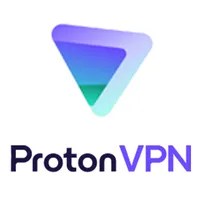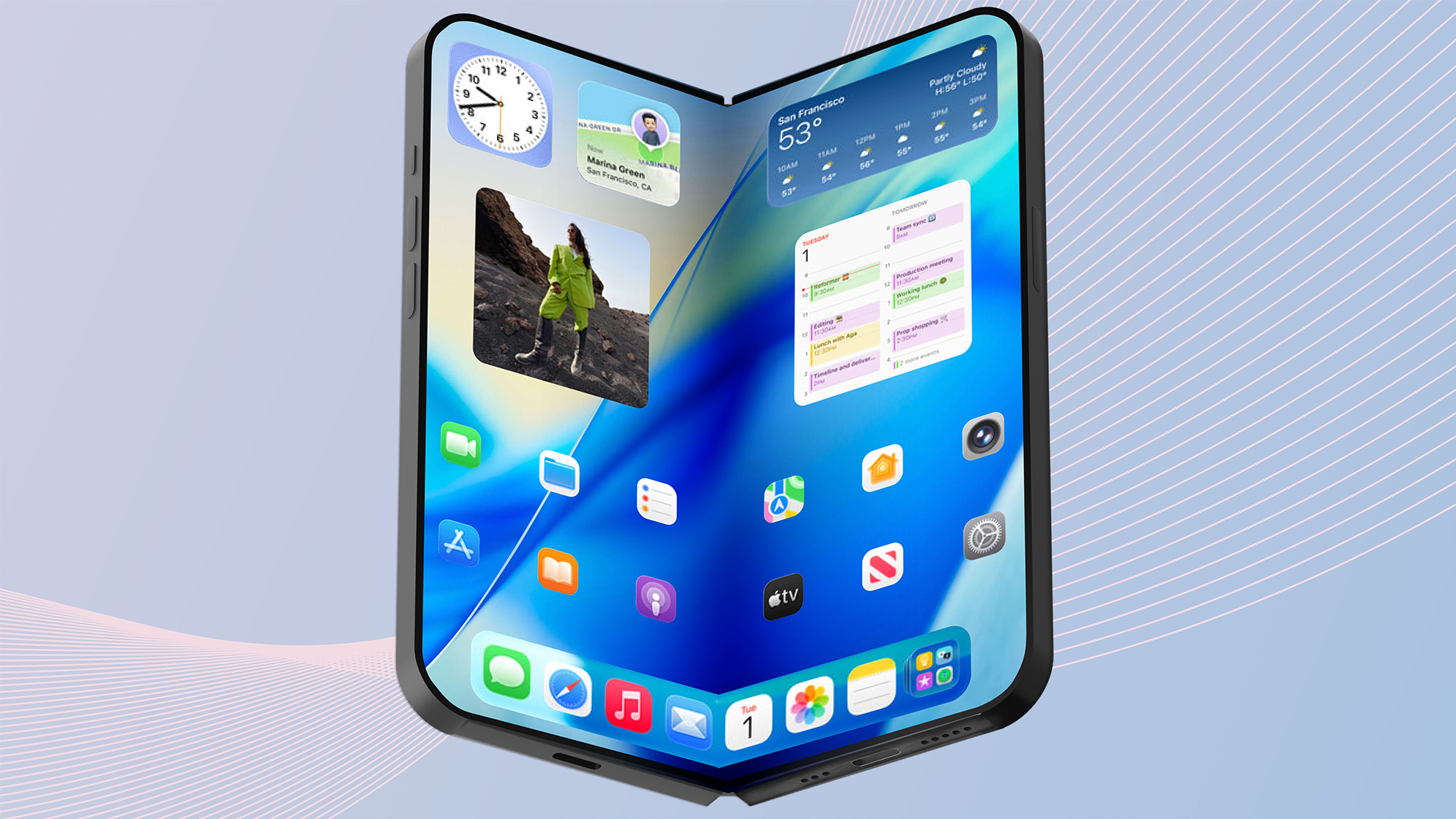The fastest VPN services in 2026
The fastest VPNs based on our hands-on lab testing
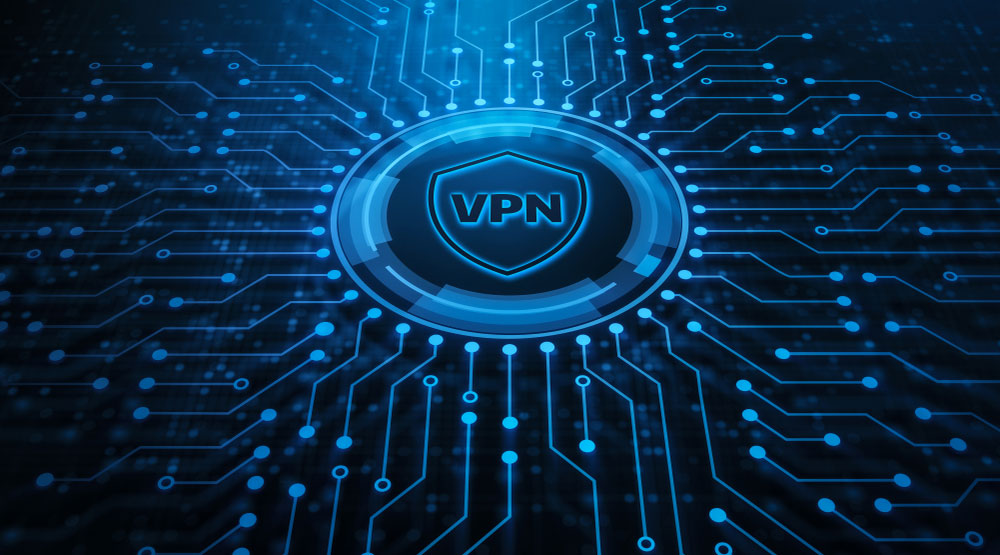
Beyond security and privacy, speed is one of the most important things to consider when choosing a VPN. If you want a smooth, stable connection while you're using your VPN, then you'll need one of the fastest VPNs.
Many of the best VPNs (and some not-so-good VPNs) all claim to be the fastest VPN on the market – but cutting through the marketing fluff can be tricky. To help you do that, we conduct a barrage of VPN speed tests to determine the real speeds VPNs can deliver on a range of connections.
We'll go into the top 5 fastest VPNs below, but if time is of the essence, check out the top 3 fast VPNs below – Proton VPN, ExpressVPN, and Norton VPN.
The 3 fastest VPNs at a glance
Proton VPN: the fastest VPN overall
Proton VPN has risen to the top of our rankings after big improvements to its speeds. It performed well in our domestic Wi-Fi tests, meaning its performance stays consistent even when not on super-fast Wi-Fi. It was also the fastest when using an obfuscated protocol, so even if you're being super-secure, you don't need to worry about being slowed down. Prices start from $2.49 per month, and you'll have 30 days to claim a refund .
ExpressVPN: the fastest peak speeds we tested
ExpressVPN is well-known as one of the most well-made VPNs, but recently it has also seriously upped its speeds. Its Lightway Turbo protocol maxed out at over 1,600 Mbps in our tests, and its OpenVPN speeds are excellent, too. However, Lightway Turbo is only available on Windows. ExpressVPN has split its VPN offering into three tiers, and prices now start at $3.49 per month. There's 4 extra free months and a 30-day refund period in case you don't like it.
Norton VPN: a newcomer to the fastest VPN list
Norton is a huge name in antivirus, but it's also been investing a lot in its VPN as well. Part of these investments has been seriously increasing its speeds, netting it the #3 spot on this list of the fastest VPNs. In testing, it achieved speeds of over 1,750 Mbps on WireGuard. Prices start from $3.33 per month ($39.99 all-in for 12 months' coverage). All tiers of subscription also include a generous 60-day money-back guarantee.
How we chose the fastest VPNs
Why you can trust Tom's Guide
You may think choosing the fastest VPN is easy – just a speed test, and the one with the quickest speed wins, right? It's actually a lot more complicated than that.
We test all the VPNs multiple times on an uncontested 10 Gbps network, morning and evening, to check the fastest possible speeds they can deliver. We first do this from Dublin to the nearest server, and then from Dublin to the US. This also lets us measure their latency and jitter, which gives us a better idea of how stable the connection is.
That's not all, though. VPNs offer a number of different encryption protocols, with some having proprietary options that promise superior speed and security. So, we repeat the same tests when using WireGuard (an encryption protocol known for its speed), OpenVPN (an encryption protocol that tends to be slower but more secure), and any proprietary protocols.
In preparation for writing this article, I also conducted speed tests while connected to my (generally slow) domestic Wi-Fi. This helps give a more realistic idea of the impact each VPN has on domestic networks.
I also took into consideration what platforms these speeds were available on. For example, if a VPN had super-fast speeds when using an encryption protocol only available on a specific platform, this counted against it in the ranking.
This is because I consider being the fastest VPN to mean the fastest VPN overall, across all platforms, rather than having just one impressive speed while other platforms are lacking.
This update has seen the rankings have quite the shakeup, with Norton VPN and Mullvad being introduced at #3 and #4 respectively, and NordVPN falling off the rankings altogether. I've included all the new results from our latest speed tests, as well as making sure that all the information below is as up-to-date as possible.
The fastest VPN overall: Proton VPN
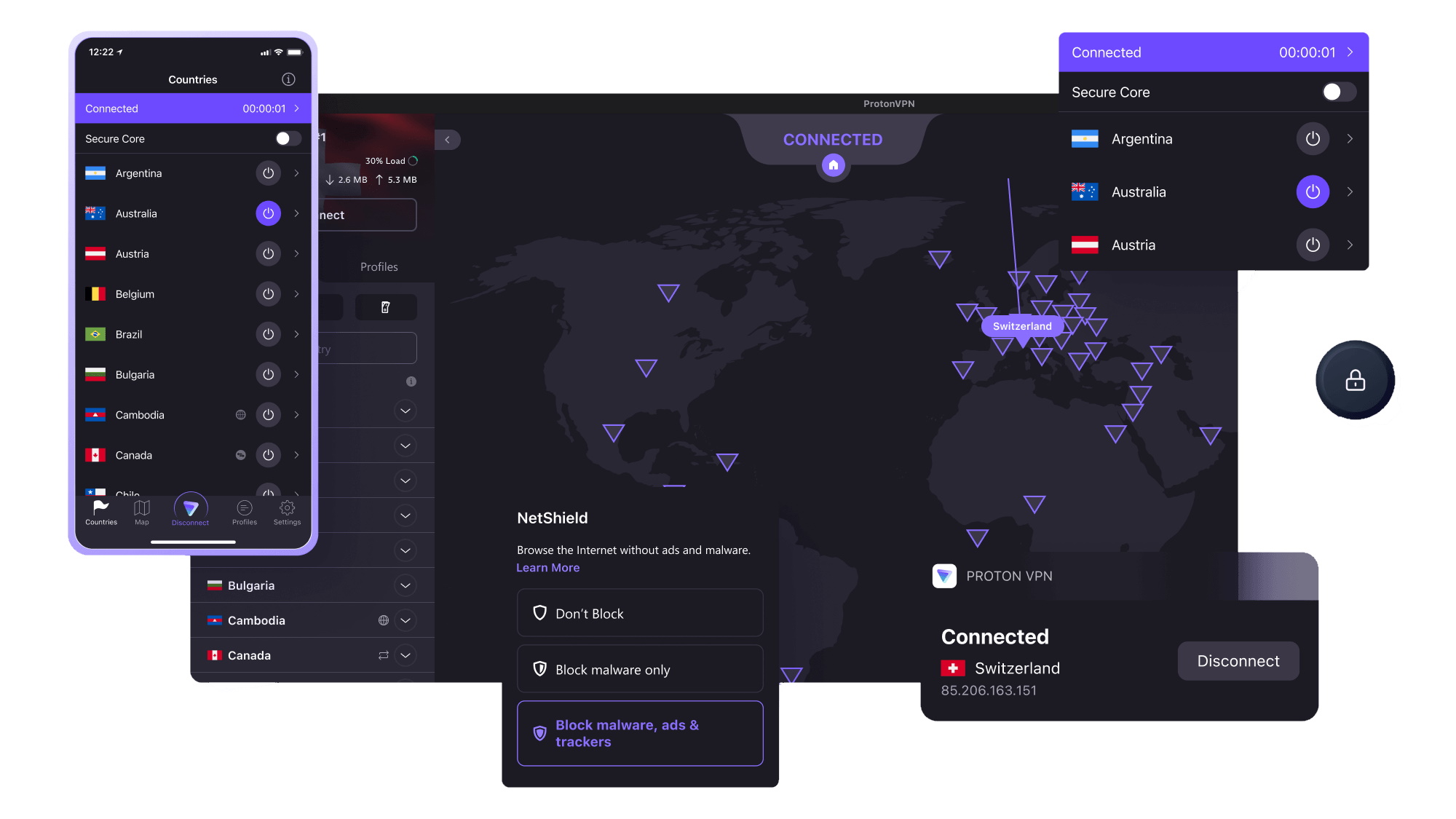
1. Proton VPN
Lightning-fast speeds across all devices, as well as decent speeds when using obfuscated servers
Fastest speed on a 10 Gbps line: 1,521 Mbps | Number of servers: 16,000+ | Server locations: 161 in 122 countries | Available on: Windows, Mac, Android, iOS, Firefox, Chrome, Android TV, Apple TV and Android Fire Stick | Streaming services unblocked: Netflix, Amazon Prime Video, Disney Plus, BBC iPlayer, ITVX, C4, 9Now, 10 Play | Maximum simultaneous connections: 10
What we like:
Over the years, Proton VPN has performed consistently well in our speed tests. However, its most recent results have cemented it as the very fastest VPN overall.
In our previous speed tests on a 1 Gbps line, Proton VPN achieved maximum speeds of 950 Mbps using the WireGuard protocol. However, on a 10 Gbps line these speeds have increased to an impressive 1,521 Mbps.
It's unlikely your connection is this fast, but Proton VPN also performs very well on slower connections. In my own speed tests on my home Wi-Fi network, Proton VPN achieved the fastest speeds of all the VPNs tested at 51 Mbps.
This is even more impressive considering my own Wi-Fi clocked in at 32 Mbps when not connected to Proton VPN. Of course, a VPN itself can't increase your base internet connection. Instead, it can reduce throttling from your internet service provider, which I believe is the case here.
As one of the most secure VPNs, Proton VPN offers an obfuscated encryption protocol called Stealth that aims to help users bypass internet censorship and conceal their VPN use.
Of all the obfuscated encryption protocols we tested, Proton VPN's Stealth was the fastest, with peak speeds of 479 Mbps. This can't match Proton VPN's WireGuard speeds, but when you take into account the fact that Stealth makes your VPN use practically undetectable, it's an excellent performance.
These speeds are likely due to a feature called VPN Accelerator. This ensures users get the fastest speeds possible automatically, no matter where they are. Proton VPN claims that VPN Accelerator can boost speeds by up to 400%.
Elsewhere, Proton VPN has impressive privacy credentials. Its Secure Core servers are the most privacy-hardened multi-hop servers of any VPN, and its no-logs policy has been proven by an independent audit.
What's more, if you fancy putting these speeds to work, Proton VPN is one of the best streaming VPNs. In our tests, it was able to unblock every streaming site we tested it with, and suffered from very few hiccups in the process.
What could improve:
OpenVPN is known for being a significantly slower encryption protocol to use, so it's unsurprising that Proton VPN's OpenVPN speeds are slower than its WireGuard speeds.
However, with peak speeds of 240 Mbps, Proton VPN's OpenVPN speeds do leave a bit to be desired. While the security offered by WireGuard is more than enough to keep you safe online, I'd like to see an uptick in OpenVPN speeds.
If OpenVPN is your preferred VPN protocol and you want the absolute fastest speeds possible while using it, I'd suggest going for ExpressVPN or Surfshark.
Another thing to consider is price. At just over $3.50 per month for a two-year subscription, Proton VPN is one of the more expensive VPNs on this list.
That said, though, it does have a free version if you don't want to shell out. Proton VPN Free is one of the best free VPNs we've tested, although you should keep in mind that its speeds will not be as fast as its premium version.
With peak speeds of 335 Mbps, Proton VPN Free is not necessarily slow, but it doesn't match up to the top speeds of the premium version. If you want a cheaper VPN with fast speeds (although not as fast as Proton VPN), go for Surfshark.
🔒 Read our in-depth Proton VPN review for all the details.
Buy Proton VPN if:
✅ You want the most consistent, fastest VPN. With speeds of 1,521 Mbps, Proton VPN is the most consistently fast VPN we've tested.
✅ You want the fastest obscured VPN. Proton VPN's Stealth protocol was the fastest obscured protocol we tested, with peak speeds of 479 Mbps.
✅ You want the fastest connection speed automatically. With its VPN Accelerator, Proton VPN will automatically connect you to the fastest possible connection, no matter where you are.
Don't buy Proton VPN if:
❌ You're on a tight budget. At around $3.50 per month for a two-year subscription, Proton VPN isn't the cheapest VPN provider around.
❌ You exclusively use OpenVPN. In our tests, when using OpenVPN, Proton VPN couldn't quite match the competition.
Fastest VPN for Windows and OpenVPN: ExpressVPN
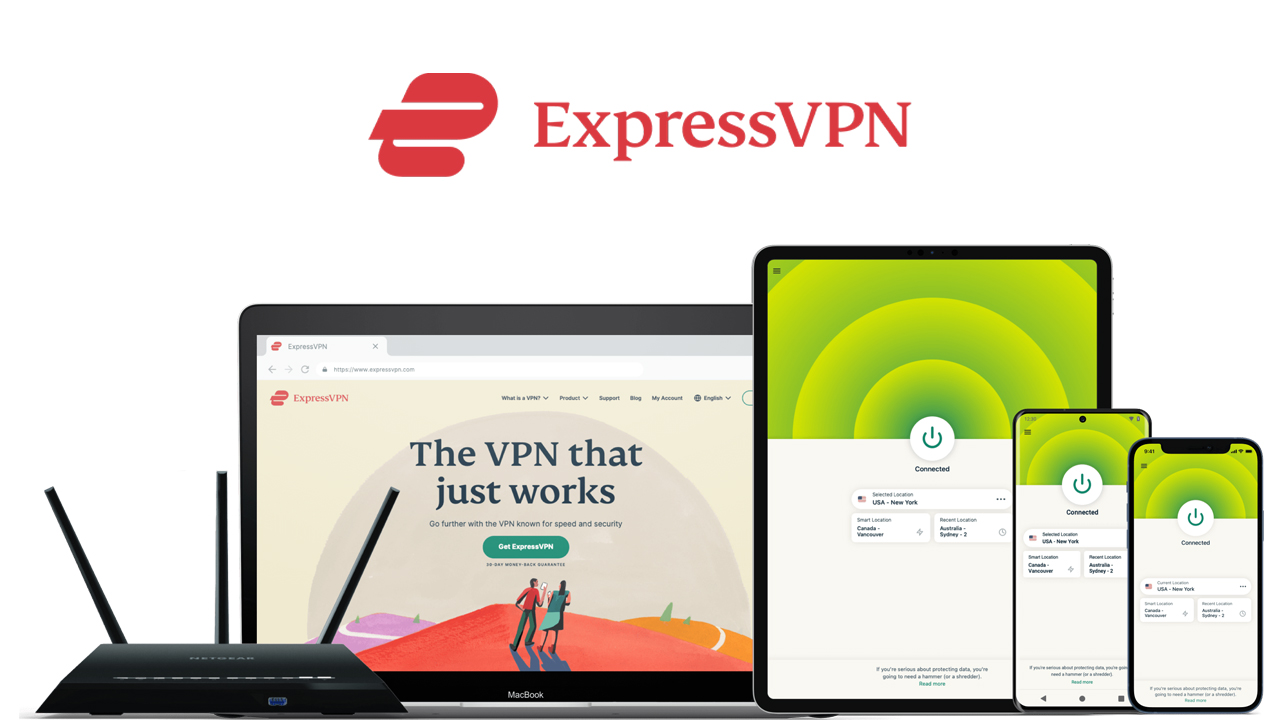
2. ExpressVPN
Incredibly rapid with Lightway Turbo and OpenVPN, but disappointing speeds elsewhere
Fastest speed on a 10 Gbps line: 1,479 Mbps | Number of servers: 3,000+ | Server locations: 160 locations in 105 countries | Available on: Windows, Mac, Linux, Chromebook, Android, iOS, Amazon Fire tablet, routers including Aircove, Asus and Negear, AppleTV, Chromecast, Playstation, Xbox, Nintendo Switch, web browsers, Smart TVs | Streaming services unblocked: Netflix, Amazon Prime Video, Disney Plus, BBC iPlayer, ITVX, C4, 9Now, 10 Play | Maximum simultaneous connections: 8
What we like:
If you're part of the Windows faithful, ExpressVPN is hands-down the fastest VPN you can download. When using Lightway Turbo, we saw peak speeds of 1,479 Mbps – one of the fastest VPNs we've tested.
However, there's a downside that we'll explore in a moment – Lightway Turbo is only available on Windows, and isn't compatible with some specific apps and games.
ExpressVPN had very impressive results in our OpenVPN tests, too, with peak speeds of 1,038 Mbps. This makes it the fastest VPN outright when using OpenVPN.
This performance is particularly good when you consider the fact that OpenVPN is known for being slower but more secure. This means ExpressVPN offers a very rare mix of great speeds and the rock-solid privacy offered by OpenVPN. This has been achieved by the use of OpenVPN DCO, which allows part of OpenVPN to work in the kernel, rather than the application, reducing load and increasing speeds.
ExpressVPN is also very fast to connect, thanks to its Parallel Connections feature. This sees the app try all available connection methods simultaneously when connecting to a server, making its connection time the fastest of any VPN I've tested. This means you can get connected and protected incredibly quickly.
ExpressVPN has had more independent audits than any other VPN, ranging from its apps, its no-logs policy, and even its server infrastructure. This gives excellent affirmation that it's safe to use, and genuinely protects your data.
What could improve:
While ExpressVPN Lightway Turbo did have some of the fastest speeds recorded in our tests, ExpressVPN's performance in other speed tests wasn't consistent enough to rank it as the very fastest VPN overall.
For a start, the version of its proprietary protocol available on devices other than Windows (ExpressVPN Lightway) only hit peak speeds of 359 Mbps, which is disappointingly slow when compared to Turbo's performance – and very surprisingly far slower than OpenVPN.
Additionally, in mobile-based speed tests, ExpressVPN had one of the slowest performance of all the VPNs on this list at 36 Mbps.
What this essentially means is that while Windows users will benefit from its super-fast speeds, if you use other devices you won't.
While largely very reliable for streaming, in our testing ExpressVPN did have a couple more hiccups than other providers. I failed once when trying to unblock Aussie streaming site 10 Play, and struggled occasionally when unblocking US-only YouTube content.
However, it was very reliable for all the mainstream sites like Netflix and Disney Plus, and other regional sites like BBC iPlayer.
🔒 Read our in-depth ExpressVPN review for all the details.
Buy ExpressVPN if:
✅ You want the fastest VPN for Windows. As the fastest provider in our last round of speed testing, ExpressVPN will protect you without slowing you down.
✅ You prefer using OpenVPN to other VPN encryption protocols. With peak speeds of 1,038 Mbps, ExpressVPN was the fastest VPN using OpenVPN on this list.
✅ You want a VPN with super-fast connection speeds. ExpressVPN's Parallel Connections will get you up and running super-fast.
Don't buy ExpressVPN if:
❌ You're not a Windows user and need ultra-fast speeds. Lightway Turbo, ExpressVPN's fastest protocol, is not available on iOS, Android, Linux or macOS.
❌ You want a fast VPN for streaming. While it was generally able to unblock everything I tested it with, ExpressVPN did have some minor issues during streaming testing.
Fastest VPN with cybersecurity features: Norton VPN
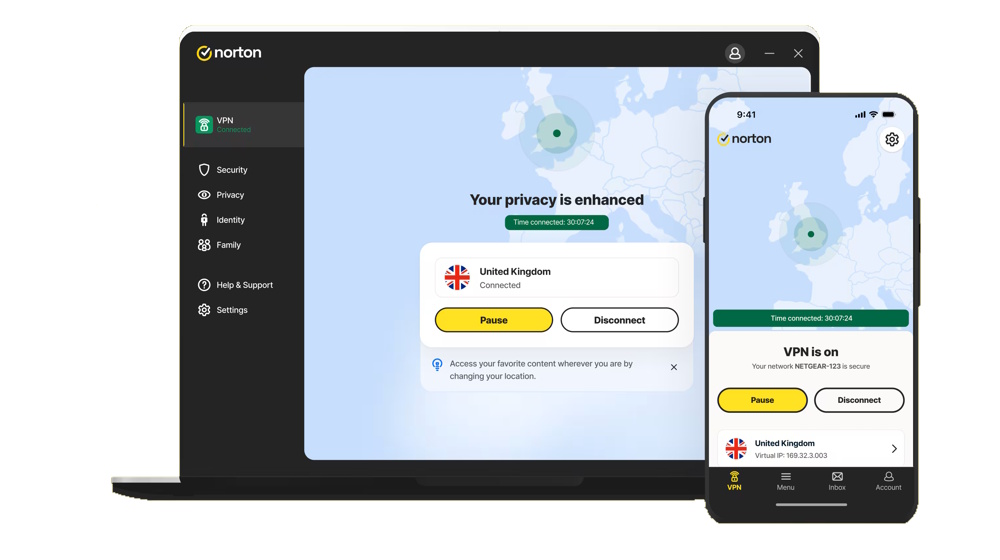
3. Norton VPN
Incredibly fast using both WireGuard and OpenVPN, and comes with added cybersecurity features
Fastest speed on a 10 Gbps line: 1,752 Mbps | Number of servers: 3,400+ | Server locations: 104 locations in 66 countries | Available on: Windows, Mac, Android, iOS, Apple TV, Google TV, Chrome, Firefox and Edge | Streaming services unblocked: Netflix, Amazon Prime Video, Disney Plus, BBC iPlayer, ITVX, C4, 9Now, 10 Play | Maximum simultaneous connections: 10
What we like:
Norton VPN is a newcomer to this guide to the fastest VPNs, but for good reason. Coming from antivirus giant Norton, this VPN has been investing heavily in its offering, and that includes its speeds.
Using WireGuard, Norton VPN achieved peak speeds of 1,752 Mbps, which is incredibly fast. This was a great improvement on its previous speeds of 909 Mbps, which were already impressive.
Its performance using OpenVPN was similarly impressive, with peak speeds of up to 1,018 Mbps, coming second only to ExpressVPN. This was a vast improvement on its speeds in previous testing, which were only 275 Mbps.
As it was created by cybersecurity giant Norton, it's unsurprising that Norton VPN bundles in some extra security features (although it should be noted that these are only included in its Plus and Ultimate subscriptions).
This includes malware protection, dark web monitoring (which lets you know if your details have appeared in data breaches), and up to 50GB of secure cloud backups and parental controls, depending on which suscription tier you go for.
What could improve:
At just under $3.50 per month, Norton VPN may not be the most expensive VPN on this list, but it's not the least expensive either. If keeping to a very strict budget is of utmost importance to you, then you might be better off with Surfshark.
Additionally, this is for its Basic subscription tier, which means you'll only get support for five simultaneous connections. If you want coverage for ten devices, you'll need to upgrade to Norton VPN Ultimate, which is usually around $5 per month. This also includes 50GB of secure storage, as well as parental control tools, malware protection, and dark web monitoring.
However, when compared to the likes of Surfshark, which offers unlimited simultaneous connections for less than $2 per month, this is quite expensive.
🔒 Read our in-depth Norton VPN Review for all the details.
Buy Norton VPN if:
✅ You want a super-fast VPN. With speeds of over 1,750 Mbps using WireGuard, Norton VPN has the second-fastest peak speeds on this list.
✅ You want a VPN that offers top speeds when using OpenVPN. With peak speeds of 1,018 Mbps, Norton VPN is second only to ExpressVPN when using OpenVPN.
✅ You want a VPN that offers extra cybersecurity features. Norton VPN's Advanced tier bundles in malware protection, dark web monitoring, and 10GB of secure cloud backups.
Don't buy Norton VPN if:
❌ You want coverage for more than 5 devices. Norton VPN Standard and Plus only offer 5 simultaneous connections, and if you want more, you'll need to upgrade your subscription.
❌ You want a super-cheap VPN. At over $3.30 per month for a two-year subscription, there are some services cheaper than Norton VPN on this list.
Fastest private VPN: Mullvad

4. Mullvad
A top choice for privacy, but not suitable for streaming
Fastest speed on a 10 Gbps line: $5.40 | Number of servers: 690 | Server locations: 87 locations in 49 countries | Streaming services: Netflix, BBC iPlayer, ITV, Channel 4, 7plus, 9Now, TVNZ+ YouTube | Maximum simultaneous connections: 5
What we like:
Mullvad is another new addition to our list of the fastest VPNs, thanks to its incredible performance in our latest round of speed tests.
On a 10 Gbps line, Mullvad achieved peak speeds of 2,140 Mbps on WireGuard, making it faster than any other VPN on this list.
Using Mullvad's Lightweight WireGuard Obfuscation, its speeds were less impressive at 287 Mbps, although this is to be expected considering it is an obfuscated protocol.
Mullvad is also one of the most private VPNs on the market, and a huge amount of work has clearly gone into making it as secure as possible.
In its latest app audit, it was proven that its software is doing exactly as Mullvad promises. Additionally, Mullvad allows you to pay in cash, which very few other VPNs offer.
What could improve:
Unfortunately, Mullvad's focus on pure privacy and nothing else means there are some big sacrifices to be made.
The most impactful of these is that it struggles to unblock many different streaming platforms. In our testing, it was unable to unblock Amazon Prime, Disney+, and 10Play. This is disappointing when compared to the performance of all the other VPNs on this list, which did not have any issues unblocking streaming services.
Additionally, when using Mullvad QUIC obfuscation protocol, its speeds were some of the slowest in testing. On a 10 Gbps line, it only achieved peak speeds of 195 Mbps.
Mullvad also doesn't offer any live chat support whatsoever, and its apps are very basic. It's a great choice if you just want a very fast, very private VPN, it's a great option, but if you want a fast VPN with a lot of features you're better going for one of the other VPNs on this list.
🔒 Read our in-depth Mullvad review for all the details.
Buy Mullvad if:
✅ You want the absolute fastest VPN. At over 2,000 Mbps, Mullvad's speeds were the fastest out of all the VPNs on this list.
✅ Privacy is your utmost concern. Mullvad is built to offer absolute privacy, including things like cash payments and post-quantum resistance.
Don't buy Mullvad if:
❌ You want to unblock streaming sites. Mullvad is one of the worst VPNs we've tested when it comes to streaming.
❌ You a VPN with lots of extra features. Unlike the other VPNs on this list, Mullvad doesn't offer any extras like an ad blocker, password manager, or malware protection.
The cheapest fast VPN: Surfshark
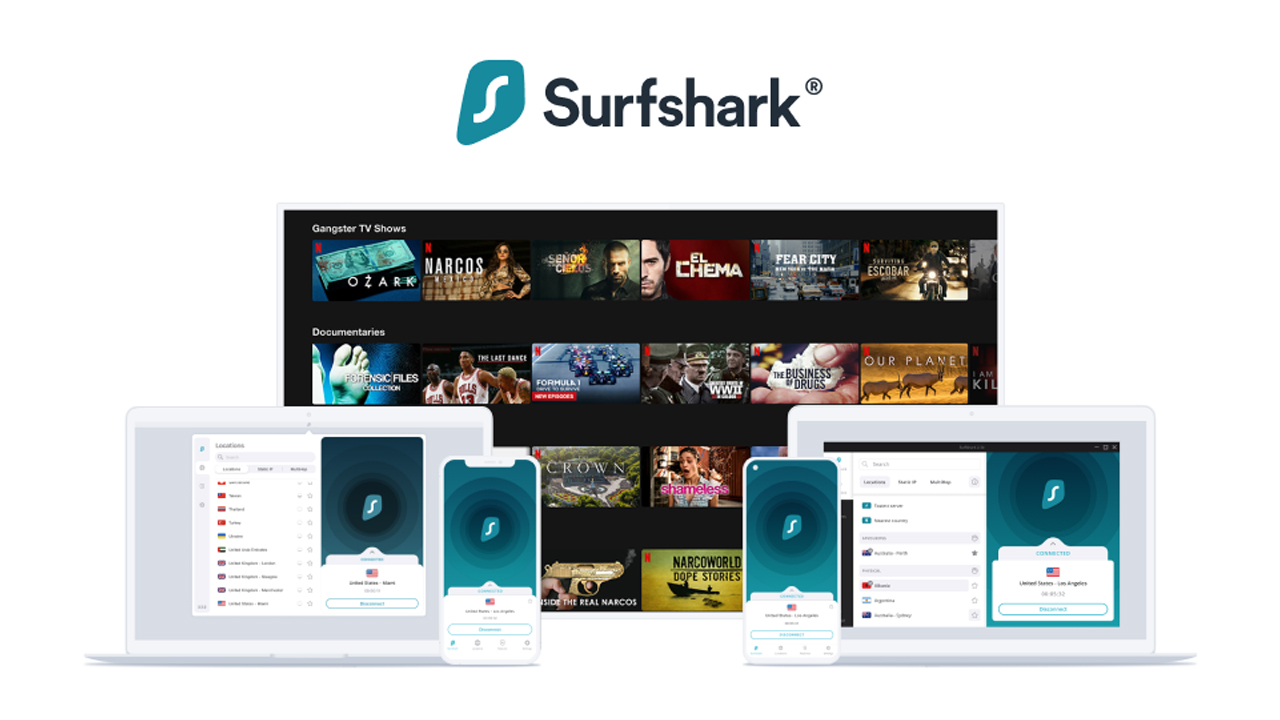
5. Surfshark
Decent speeds across WireGuard and OpenVPN, as well as the cheapest price on this list
Fastest speed on a 10 Gbps line: 1,615 Mbps | Number of servers: 4,500+ | Server locations: 141 in 100 countries | Available on: Windows, Mac, Linux, Chromebook, Android, iOS, Amazon Fire tablet, routers including Aircove, Asus and Negear, AppleTV, Chromecast, Playstation, Xbox, Nintendo Switch, web browsers, Smart TVs | Streaming services unblocked: Netflix, Amazon Prime Video, Disney Plus, BBC iPlayer, ITVX, C4, 9Now, 10 Play | Maximum simultaneous connections: Unlimited
What we like:
Surfshark may have fallen from its #1 spot on this list to #4, but that doesn't mean it's not worth considering – especially as a cheap fast VPN.
In testing, Surfshark's peak WireGuard speeds were some of the best at 1,615 Mbps. Its OpenVPN speeds were also impressive in testing, with peak speeds of 978 Mbps. This makes it second only to ExpressVPN and Norton VPN when using this encryption protocol.
Surfshark did perform well on my very slow domestic Wi-Fi connection, with speeds of 48 Mbps. That figure puts it in second when using domestic Wi-Fi, coming in after Proton VPN.
Anecdotally, Surfshark offers some of the smoothest connections I've experienced during testing. When checking its unblocking ability for my best streaming VPN ranking, Surfshark was the only VPN that didn't experience even slight lag or buffering while streaming.
A great thing about Surfshark is that it offers unlimited simultaneous connections, a much more generous offer than all the other VPNs on this list.
With its speeds, you should be able to use Surfshark across as many devices as you like without experiencing any slowdown.
What could improve:
While Surfshark's speeds of 1,615 Mbps are certainly nothing to be sniffed at, its speeds have varied wildly during our previous testing, occasionally dropping below 900 Mbps, while other VPNs have been more consistent.
With this being said, in my own personal use and experience, Surfshark's connections have felt fast, strong, and stable. It's one of the few VPNs that I haven't experienced any lag or buffer whatsoever during streaming testing.
You should also keep in mind that while Surfshark is definitely great value for your first two years, just like with NordVPN, you will be subject to price hikes once your subscription renews.
If you want to avoid this, you'll have to cancel your subscription before it ends, then sign up for a brand new one.
🔒 Read our in-depth Surfshark review for all the details.
Buy Surfshark if:
✅ You want a cheap fast VPN. At under $2 per month, Surfshark is the cheapest VPN provider on this list.
✅ You prefer to use OpenVPN. At 978 Mbps, Surfshark's OpenVPN speeds were the third fastest we tested.
✅ You want to cover a lot of different devices. With unlimited simultaneous connections, you can cover as many devices as you want, with no restrictions.
Don't buy Surfshark if:
❌ You want the absolute fastest VPN. Surfshark's speeds are good, but not the absolute fastest. They also fluctuate wildly based on our testing.
❌ You want to avoid price hikes. While Surfshark's initial prices are excellent value, you will be subject to price hikes upon renewal.
Which VPN is the fastest?
While Mullvad did achieve the fastest speed in our tests of over 2,000 Mbps while using WireGuard, Proton VPN takes the #1 spot as the fastest VPN.
This is due to the fact that it is stronger in other areas that Mullvad isn't (for example, streaming support).
Additionally, Proton VPN has consistently achieved speeds of over 950 Mbps in previous tests, giving it a good track record in terms of performance.
When it comes to the OpenVPN protocol, ExpressVPN is the fastest, with speeds of 1,038 Mbps. This is especially impressive considering the fact that OpenVPN tends to be significantly slower than other encryption protocols due to its age and large code.
Is a VPN faster than Wi-Fi?
The speeds a VPN can reach is dictated by how fast your Wi-Fi is. A VPN can't go faster than your connection allows, and generally it will slow peak speeds down a little because your traffic has to travel through an extra server between your device and the website you're visiting.
However, a VPN can sometimes make your base connection appear faster if you're experiencing throttling from your ISP.
This is because your ISP can choose to throttle your connection if you're using too much bandwidth, or undertaking activities that might compromise other users. When using a VPN, your internet traffic is hidden from your ISP. This means it can't make the decision to throttle your connection based on online activity, and you may see better speeds with it connected.
How does a VPN work?
Using a VPN creates a secure, encrypted tunnel between your device and the internet, which all of your internet traffic is routed through. This means that your data is kept safe from anyone who may be trying to intercept it, for instance your internet service provider (ISP) or the government.
If you're experiencing throttling from your ISP then using a VPN can increase your connection speed, as your ISP cannot see your internet traffic. This means it cannot limit your bandwidth based on online activity.
When you use a VPN, you connect to a VPN server before connecting to the internet. This assigns you a different IP address from your home IP address, and means your online activity cannot be traced back to you.
This also means that you'll virtually appear to be within a country if you connect to a server within that country, giving you access to any geo-restricted content within that country (e.g. on streaming platforms).
How to choose the right fast VPN
While you might think this is as easy as checking to see which VPN got the fastest possible result in our testing (it was ExpressVPN, by the way), there are a few things to take into consideration when looking for the fastest VPN.
You'll need to look at the speeds achieved on different protocols, and where these protocols are available. It's no good going for a VPN which offers top speeds but only on an encryption protocol that isn't available on any of the devices you use (like ExpressVPN's Lightway Turbo only being available on Windows).
If obfuscation is important to you, it's also a good idea to check out the top speeds of your chosen VPN while using more secure protocols that are designed to be undetected.
Price might also be a factor for you, and you'll have to decide if you want to go for the absolute maximum speeds possible no matter the cost, or go for a slightly slower, less expensive VPN.
The experts that test VPNs at Tom's Guide

Olivia joined Tom's Guide in October 2023, and is currently VPN Commissioning Editor. She regularly uses VPNs to make sure they deliver what they promise, and specializes in testing VPNs with streaming sites. For this guide, they tested all the VPNs listed on their domestic Wi-Fi in order to determine their speed in a real-world environment.

Mo has written about VPNs for Tom's Guide, day-in, day-out, for five years. He's an expert when it comes to what makes a VPN truly usable, and loves it when a VPN makes staying safe online as easy as possible. He is also a contributor to TechRadar, T3, and What Hi-Fi?.
We test and review VPN services in the context of legal recreational uses. For example: 1. Accessing a service from another country (subject to the terms and conditions of that service). 2. Protecting your online security and strengthening your online privacy when abroad. We do not support or condone the illegal or malicious use of VPN services. Consuming pirated content that is paid-for is neither endorsed nor approved by Future Publishing.
Get instant access to breaking news, the hottest reviews, great deals and helpful tips.

Olivia joined Tom's Guide in October 2023 as part of the core Tech Software team, and is currently VPN Commissioning Editor. She regularly uses VPNs to make sure they deliver what they promise, and specializes in testing VPNs with streaming sites.
- Mo Harber-LamondVPN Editor
 Club Benefits
Club Benefits





